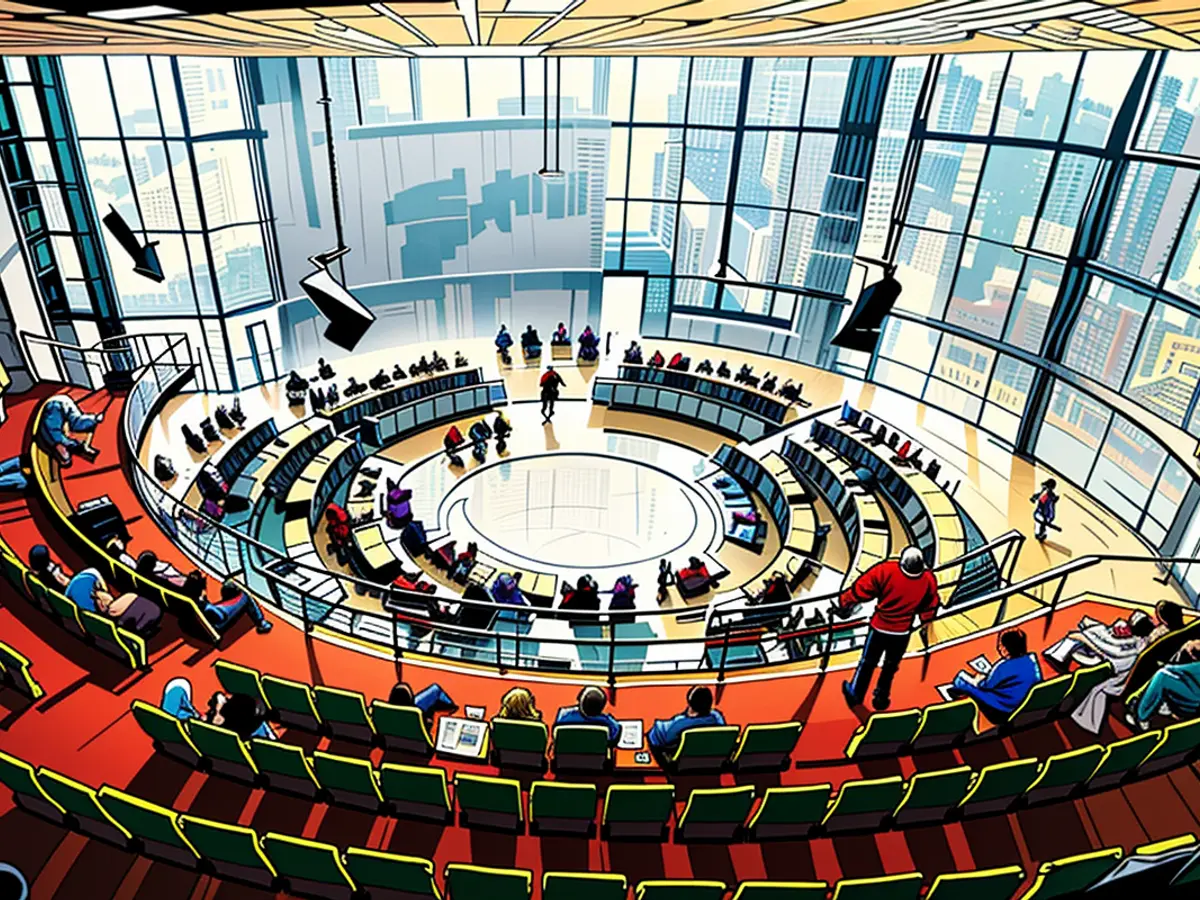Legislative body rephrasing: Governmental decision-making assembly - Political expert suggests a three-party parliament could be possible in Saxony.
Herr Hendrik Träger, a political scientist from Leipzig, believes that the way Saxons voted for the European Parliament hints at an intriguing scenario for the state's election on September 1st. With the SPD, Greens, and Left not far from the five-percent barrier, there's a distinct possibility of a parliament with three factions - AfD, CDU, and BSW. "This means the CDU could emerge victorious, whether it's with Sahra Wagenknecht's new party or the AfD," he told the German Press Agency in Dresden.
The key now lies with the parties in the political center. They'll have to figure out to what extent they consider each other their primary opponent during the campaign and counterattack accordingly. BSW and AfD wouldn't necessarily need to do much in this situation and could still garner decent results, stated Träger.
Träger also believes the nationwide outcome of the EU election is easy to predict. It's common knowledge that ruling parties lose votes to varying degrees at this election. However, there are instances where they manage to maintain or even improve their vote share. "But, in general, European elections are used to express dissatisfaction with the government. This isn't a revolutionary concept."
The better result for AfD in Eastern Germany can be attributed to the diminishing competition between the first and second-place positions. As the region becomes more rural, the better AfD performs. "In some cases, up to half of the population might vote for them. Not so shocking, right?"
For years, the CDU has been the leading party in Saxony's rural regions, Träger reminded us. Yet, they're struggling to hold their ground recently. "The CDU needs to figure out how they can improve their position before the state election. The Union can't gain from the unhappiness towards the traffic light coalition, at least not in Saxony."
Träger largely credits the CDU's underwhelming performance to its own mistakes, rather than voter dissatisfaction with the federal government's policy. "It's too simplistic to blame the federal government for their own election results. The CDU must also take responsibility for only having 30% in the polls, instead of 40%." After being the top force in the state for more than 30 years and providing the state's minister-president, this is a significant shift.
Read also:
- The SPD, traditionally a strong force in German politics, might face challenges in the upcoming European Parliament elections, as seen in the voting trends of municipalities across Germany.
- The SPD, along with the Greens and the Left, are closely competing to surpass the five-percent threshold required to enter the European Parliament, according to data from the German Press Agency.
- The SPD, previously the leading party in Saxony's state elections, is currently grappling with lower poll numbers, with predictions indicating only 30% support.
- In the European Parliament elections, the CDU, traditionally a powerful party in Germany, could face stiff competition from alternative parties like the AfD and BSW.
- The AfD, a far-right party, has shown prominent growth in Eastern Germany, particularly in rural municipalities, due to the diminished competition between the first and second-place positions.
- The CDU, despite its dominant position in Saxony for over 30 years, must devise strategies to improve its performance in the forthcoming state election, as voters appear to be moving towards other parties.
- Sahra Wagenknecht, a prominent German politician, and her new party could potentially form alliances or influence the make-up of the European Parliament, as indicated by election trends in Saxony.
- The Federal Election is another crucial event on the political calendar, following the European and state elections, which will further shape the political landscape of Germany.
- The outcome of the European elections could signal shifts in the balance of power within the European Parliament and the EU as a whole, potentially affecting policy and decision-making processes.








